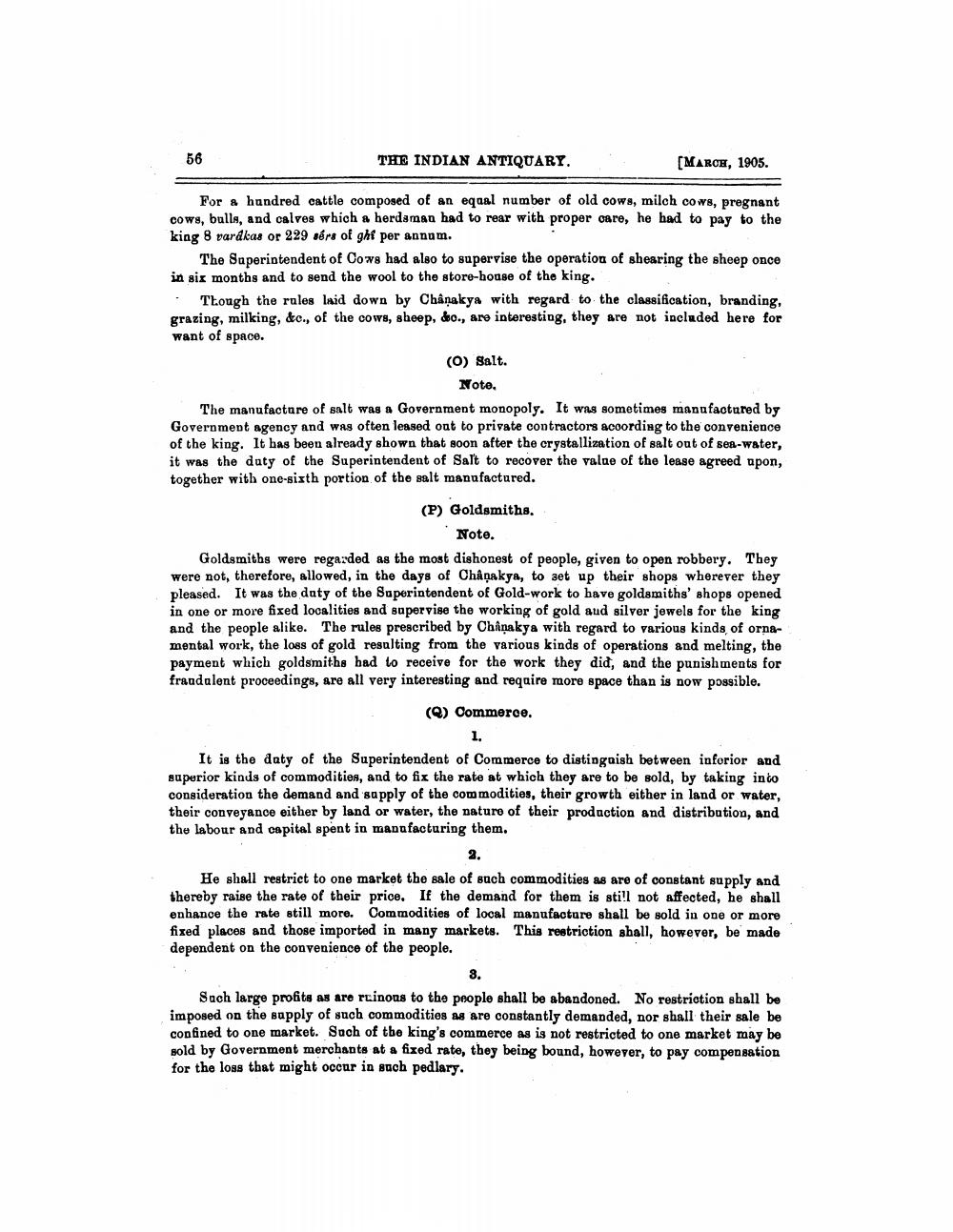________________
56
THE INDIAN ANTIQUARY.
[MARCH, 1905.
For a hundred cattle composed of an equal number of old cows, milch cows, pregnant Cows, bulls, and calves which a herdaman had to rear with proper care, he had to pay to the king 8 vardkas or 229 sérs of ghé per annum.
The Superintendent of Cows had also to supervise the operation of shearing the sheep once in six months and to send the wool to the store-house of the king. • TŁough the rules laid down by Chanakya with regard to the classification, branding, grazing, milking, &c., of the cows, sheep, &o., are interesting, they are not included here for want of space.
(0) Salt.
Note, The manufacture of salt was a Government monopoly. It was sometimes manufactured by Government agency and was often leased out to private contractors acoording to the convenience of the king. It has been already shown that soon after the crystallization of salt out of sea-water, it was the daty of the Superintendent of Salt to recover the value of the lease agreed upon, together with one-sixth portion of the salt manufactured.
(P) Goldsmiths.
Note. Goldsmiths were regarded as the most dishonest of people, given to open robbery. They were not, therefore, allowed, in the days of Chanakya, to set up their shops wherever they pleased. It was the daty of the Superintendent of Gold-work to have goldsmiths' shops opened in one or more fixed localities and supervise the working of gold aud silver jewels for the king and the people alike. The rules prescribed by Chanakya with regard to various kinds of ornamental work, the loss of gold resulting from the various kinds of operations and melting, the payment which goldsmiths had to receive for the work they did, and the punishments for frandalent proceedings, are all very interesting and require more space than is now possible.
(Q) Commerce.
It is the daty of the Superintendent of Commerce to distinguish between inforior and superior kinds of commodities, and to fix the rate at which they are to be sold, by taking into consideration the demand and sapply of the commodities, their growth either in land or water, their conveyance either by land or water, the nature of their production and distribution, and the labour and capital spent in manufacturing them.
2.
He shall restrict to one market the sale of such commodities as are of constant supply and thereby raise the rate of their price. If the demand for them is still not affected, he shall enhance the rate still more. Commodities of local manufacture shall be sold in one or more fixed places and those imported in many markets. This restriction shall, however, be made dependent on the convenience of the people.
8. Sach large profite as are ruinons to the people shall be abandoned. No restriction shall be imposed on the supply of such commodities as are constantly demanded, nor shall their sale be confined to one market. Such of the king's commerce as is not restricted to one market may be sold by Government merchants at a fixed rate, they being bound, however, to pay compensation for the loss that might occur in such pedlary.




